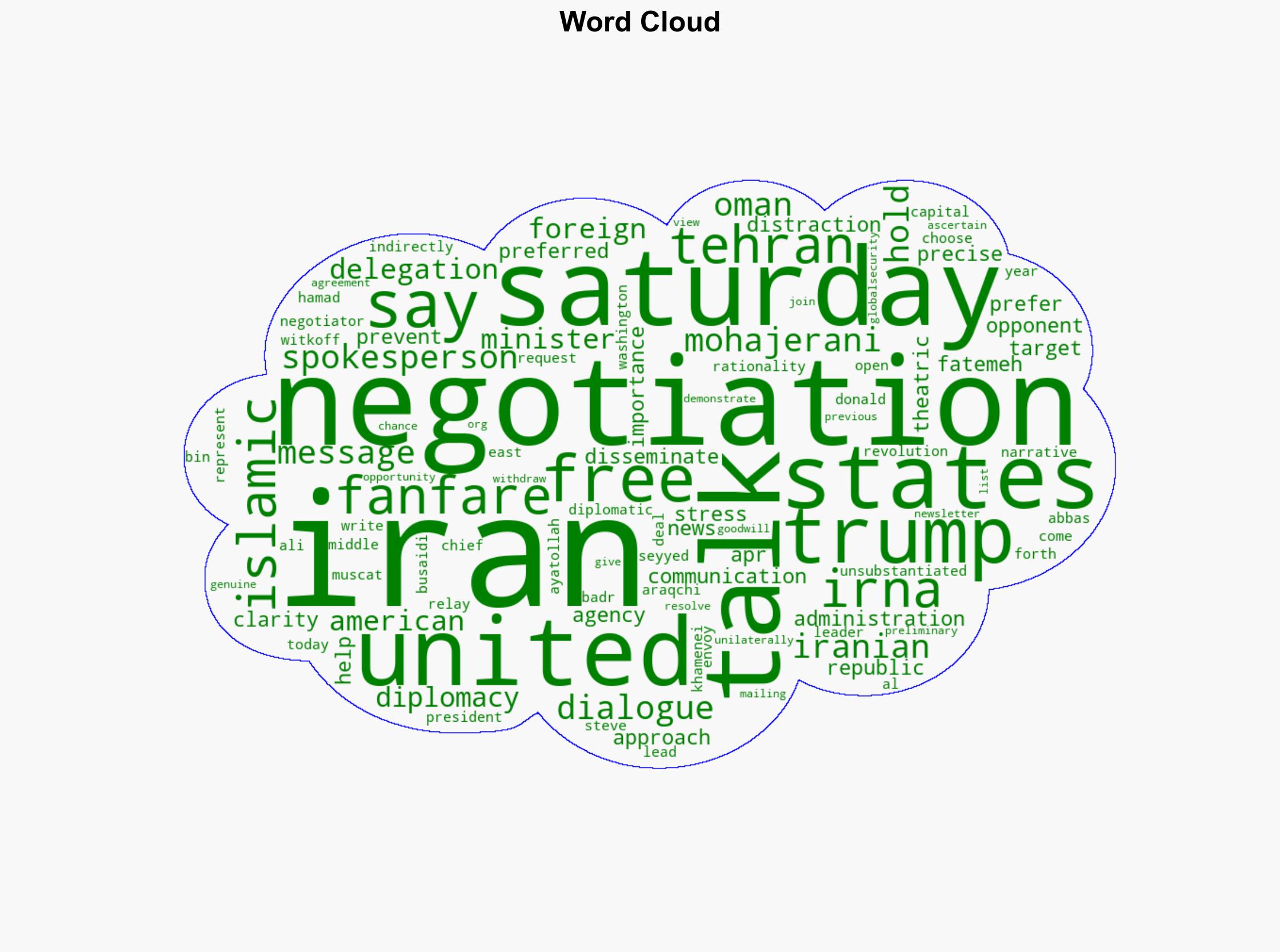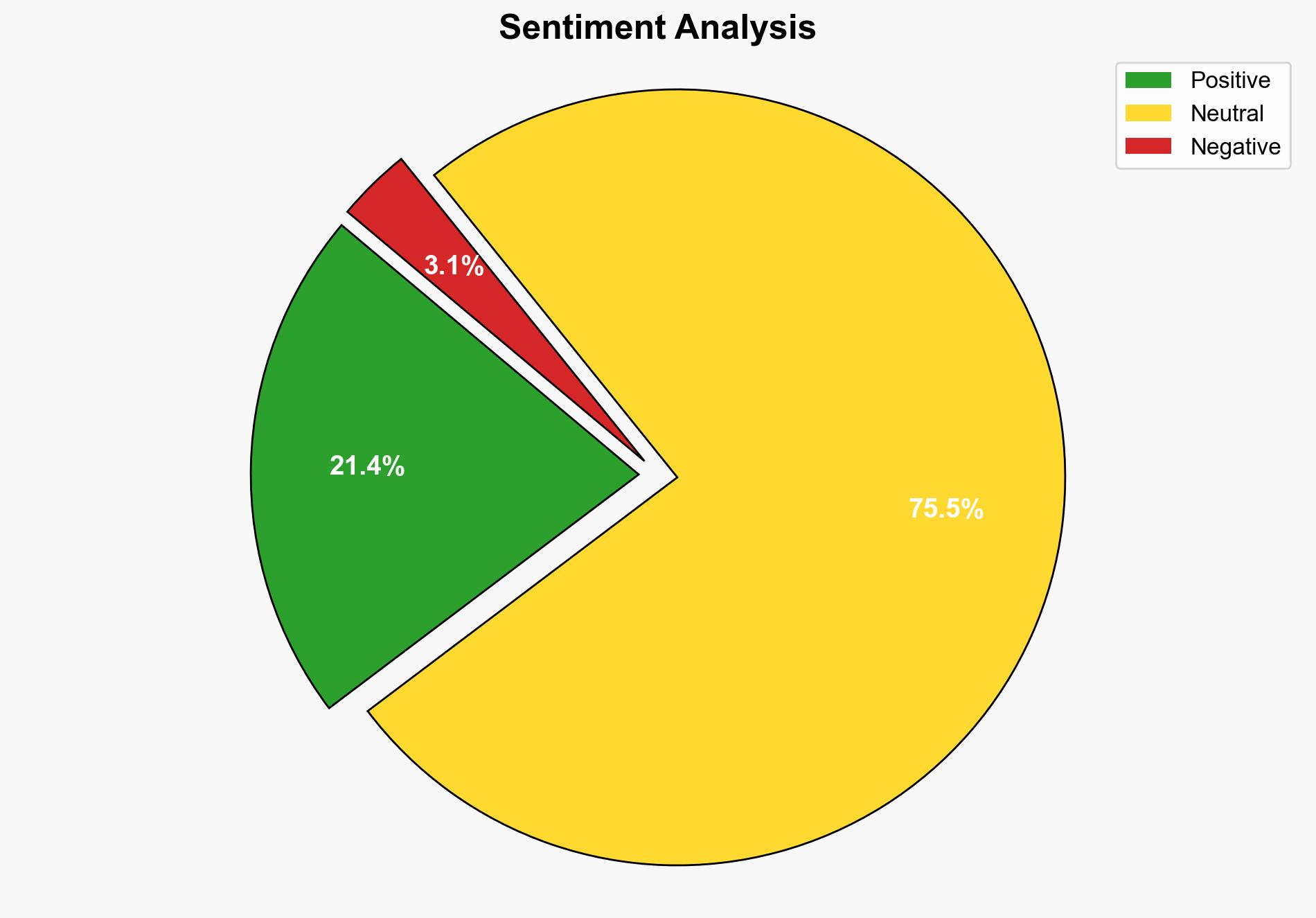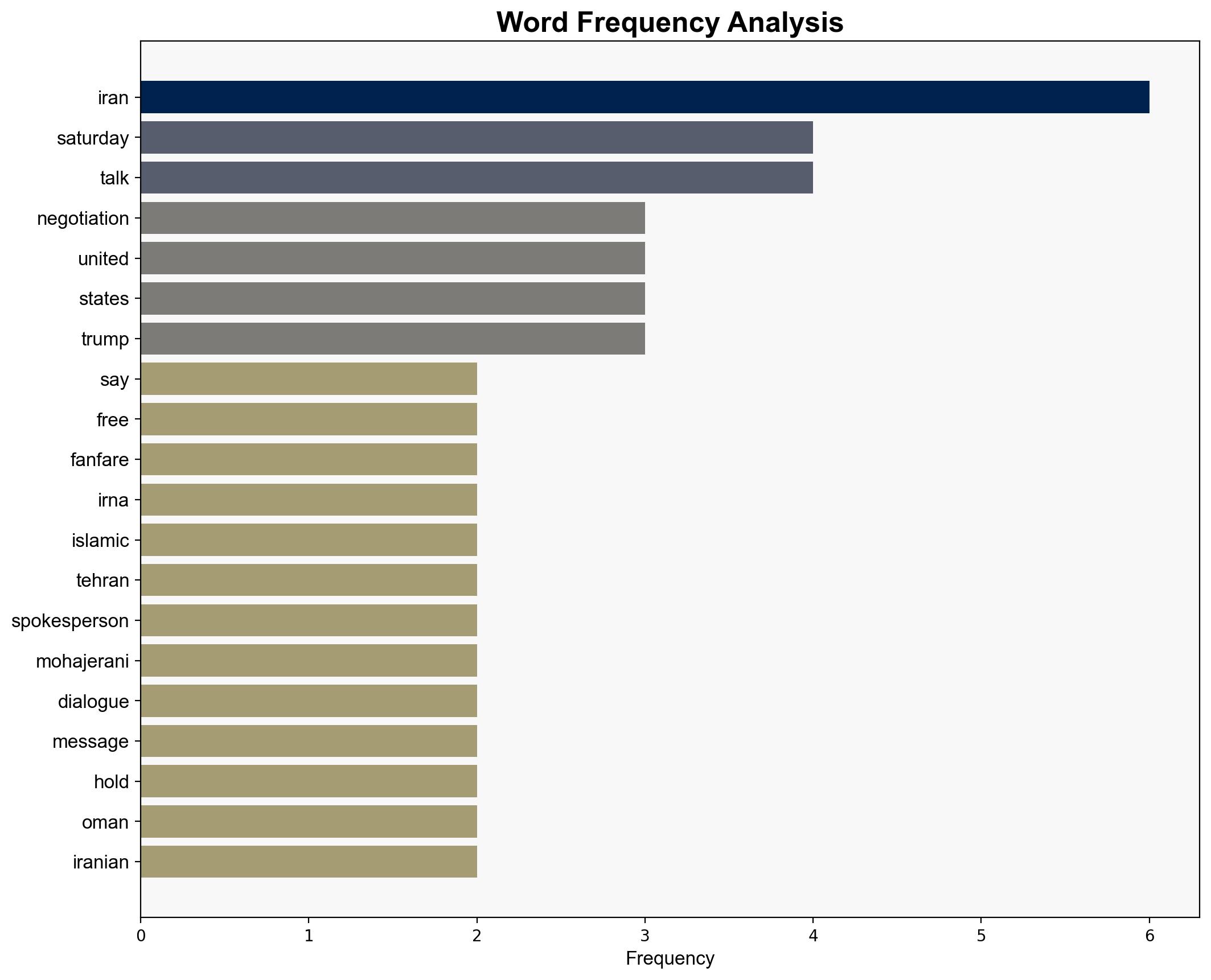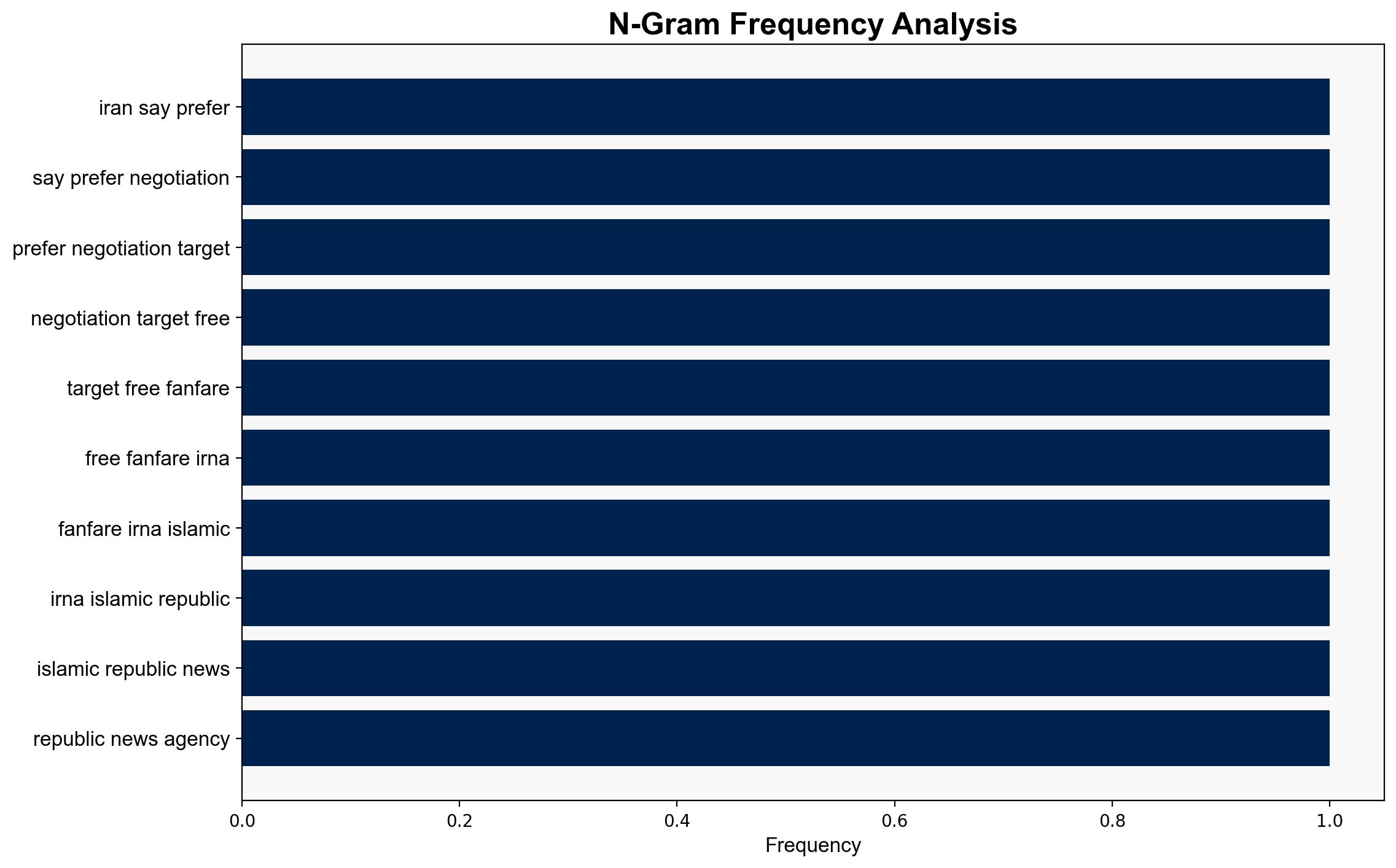Iran says it prefers negotiations that are on target and free from fanfare – Globalsecurity.org
Published on: 2025-04-13
Intelligence Report: Iran says it prefers negotiations that are on target and free from fanfare – Globalsecurity.org
1. BLUF (Bottom Line Up Front)
Iran has expressed a preference for negotiations with the United States that are precise and devoid of theatrics, aiming to prevent the spread of unsubstantiated narratives. Recent indirect talks in Muscat, facilitated by Oman, mark the first engagement in years between the two nations. This development follows a request from Donald Trump to Ayatollah Seyyed Ali Khamenei to reopen dialogue. Iran is cautiously optimistic, contingent upon the U.S. demonstrating genuine commitment to diplomacy.
2. Detailed Analysis
The following structured analytic techniques have been applied for this analysis:
General Analysis
Iran’s strategic communication emphasizes clarity and precision in diplomatic engagements, reflecting a desire to manage narratives and maintain control over the diplomatic process. The indirect nature of the talks, with Oman acting as an intermediary, suggests a cautious approach by both parties. The involvement of key figures such as Abbas Araqchi and Steve Witkoff indicates the high stakes and potential for significant diplomatic shifts.
3. Implications and Strategic Risks
The resumption of dialogue between Iran and the United States carries several strategic implications:
- National Security: Successful negotiations could lead to de-escalation of tensions and a reduction in regional conflict risks.
- Regional Stability: Improved U.S.-Iran relations may influence power dynamics in the Middle East, affecting allies and adversaries alike.
- Economic Interests: A potential agreement could impact global oil markets and economic sanctions, with broad implications for international trade.
4. Recommendations and Outlook
Recommendations:
- Encourage continued diplomatic engagement with a focus on building trust and verifying commitments.
- Support initiatives that promote transparency and communication to prevent misinformation and manage public perception.
- Consider regulatory adjustments to facilitate economic cooperation should a formal agreement be reached.
Outlook:
Best-case scenario: Successful negotiations lead to a comprehensive agreement, easing regional tensions and fostering economic collaboration.
Worst-case scenario: Talks collapse, resulting in heightened tensions and potential conflict escalation.
Most likely outcome: Incremental progress with ongoing negotiations, contingent upon mutual demonstrations of goodwill and commitment.
5. Key Individuals and Entities
The report mentions significant individuals and organizations:
- Fatemeh Mohajerani
- Abbas Araqchi
- Steve Witkoff
- Donald Trump
- Ayatollah Seyyed Ali Khamenei
- Badr bin Hamad Al Busaidi





